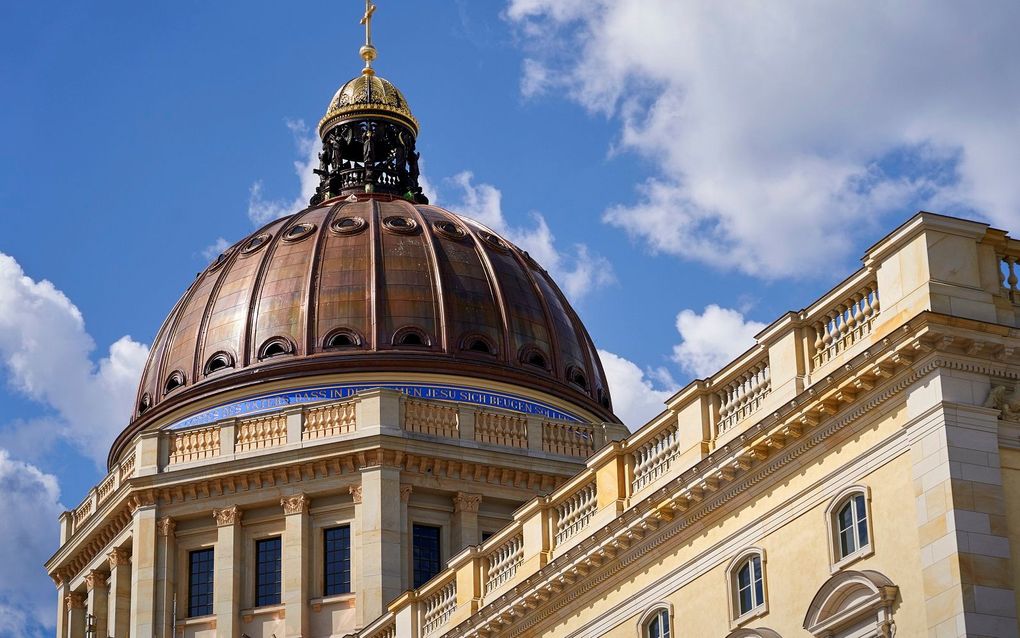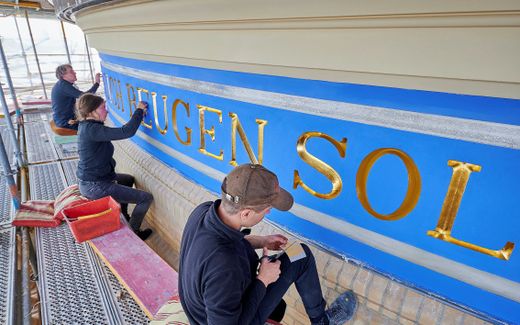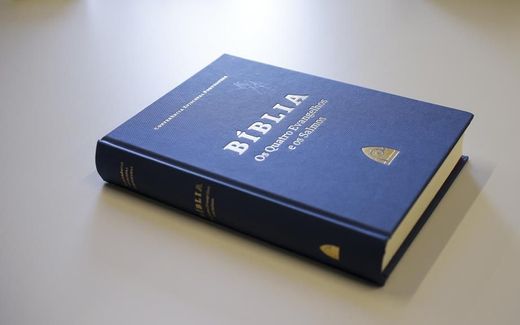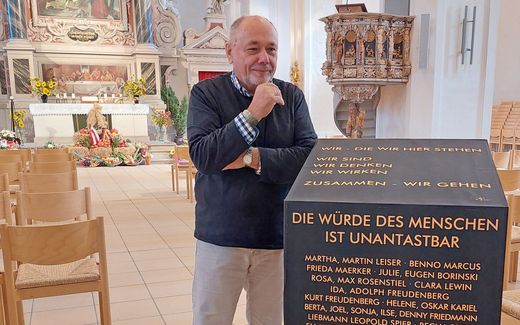Opinions on Bible verse on German City Palace differ

The Bible text on the dome of the City Palace in Berlin. Photo Flickr, micharl_foto
Central Europe
The Biblical inscription on the dome of the City Palace in Berlin remains an issue of controversy. Last week, Minister of State for Culture, Claudia Roth, called for covering the Bible verse with lighting. Protestant Bishop Christian Stäblein from Berlin is annoyed by the upheaval and thinks it is nonsense to speak about a cultural war.
Instead, he emphasises that the New Testament does not contain any authorisation for Christians to rule to world or to submit non-believers. That is reported by PRO. “It is irritating and absurd to believe that today's representatives of religion have to be put in their place”, he stated during a debate on Sunday. “I would fear a state that thinks everything religious belongs out of the public space, even if it is historical testimony to warn.”
The part of the inscription on the dome of the City Palace that causes most controversy is the text that reads “That at the Name of Jesus, every knee should bow, which are in heaven and on earth and under the earth.” According to Stäblein, this should not be understood as Christian world dominance, but instead, that all people, “including a Prussian king”, should bow their knees to Christ.”
Indispensable
Politicians who are spokespeople for religious affairs, are careful in giving their opinion on the issue. Lars Castellucci, from the ruling Social Democratic Party of Germany (SPD), says that he fully supports Claudia Roth. He said to PRO that Christians should be sceptical about Bible verses on public buildings. He thinks it is “overly clear” that the Bible verse on the City Palace was placed there by the authorities to demonstrate power. “Christians can do without that”, he argues. According to him, art should be used critically to deal with this type of issues.
Christian Democrat Thomas Rachel strongly opposes covering of the inscription on the City Palace. He says that "in principle” no Biblical inscriptions on public buildings should be hidden in general. At the same time, he notes that sometimes it can be an option to contextualise individual inscriptions on information boards. “In such cases, churches should be actively involved”, he says to PRO. According to Rachel, the Bible and Christianity are an “indispensable part of Germany's cultural and historical identity.”
Free Democrat Sandra Bubendorfer, from the liberal ruling FDP party, does not comment specifically on the Bible inscription on the City Palace, PRO writes. Instead, Bubendorfer says to hope for a “good compromise in the interests of everyone involved.” The FDP politician points out that the inscription itself, as well as the right to express criticism of it are protected by the German Constitution. She points out that there are information boards that explain the context of the inscription.
Secularism
Politician Lamya Kaddor from the Green Party, which is also in the ruling coalition, thinks the Bible verse on the City Palace should be approached differently. Making them invisible harms the potential of understanding society as it is today, she says. Furthermore, Kaddor states that the Bible verses are not in conflict with secularism. She points out that the information boards at the site distance themselves from Christianity's supposed claim that it is the only valid religion.
Related Articles






